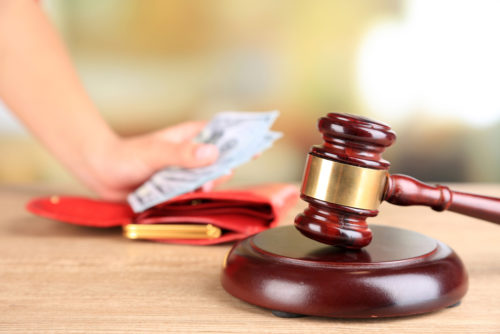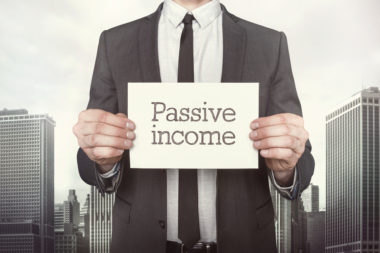If you’re at retirement age and you find yourself facing extensive debts, you could be worried about garnishments of your retirement funds via a court order. It’s common for individuals with sizable debts, regardless of age, to be approached by creditors to repay these debts. If the money is not repaid in a timely fashion, regardless of the reasoning, the creditors may decide to take you to court in an attempt to fulfill the debts owed. Yet, as it pertains to people of retirement age, there are certain restrictions in a court of law regarding the seizing of retirement income — specifically, pensions.
When we talk about garnishment, we mean that a court has ordered for debts to be repaid. In order to do so, your income will be seized. Now, income may be defined as personal monetary income, like from an employer, or it can also be seen as property, objects, or possessions. Under a court order, garnishments may mean that your property is sold in order to repay certain debts. On the other hand, if you have additional income, you may simply be asked to pay back the debt in a lump sum or installments.
Income may be defined in court differently for some people, depending on their current financial situation. However, it’s common for any deposits into your account (be that social security, retirement checks, or traditional income) to be viewed wholly as income in a court of law. Although, you may be interested to know that there are certain laws that protect your retirement funds, particularly if you have a pension account.
Table of Contents
Can Creditors or Lenders Garnish Pensions?
Most pensions are protected by a US law called the ERISA, or the Employee Retirement Income Security Act. Essentially, this law requires that if pensions would like to be protected, they must meet a certain standard regulated by this statute. Firms and brokerages that offer pension plans should be keenly aware of this law and as such, your pension should be protected in most circumstances. Although, if you’re thinking about opening up a new pension plan, it’s definitely worth talking to your broker about the ERISA to ensure that your funds will be protected and to understand under which circumstances you might have to worry.
The ERISA requires that under a covered plan, customers must be given frequent and updated information about their plan. There must also be a minimum standard for enrollment and participation on your plan. It requires that all individuals who are working on or with your pension plan be responsible for their actions. That is to say, that brokers are held to a certain standard and must be forthcoming and share a goal with you to increase your pension savings. If an employee breaks their rules of conduct, they should be held liable for making up your losses. In addition, you should have the right to sue the organization for any misconduct. Lastly, even if you cancel your pension plan, you should still receive any payments that you are due.
Under this protection, creditors and courts are not allowed to remove funds directly from your pension plan. Creditors and courts will not be given access to your personal pension plan for any reason. Your pension money is safe in that account under the ERISA, but you should be aware of some scenarios in which it might become legal for creditors or courts to obtain some of your pension funds.
Federal Pensions
Like most pensions, federal pensions are usually protected by law. Even, if you receive a court ruling stating that you must make payments or some other arrangement (like surrendering your property), the court and creditors are commonly not allowed to withdraw pension money from your account.
However, sometimes there are additional stipulations that come along with these types of scenarios. For example, federal pension money that is held in your bank account for an extended period of time may become eligible for withdrawal by creditors. In a situation in which a court is determining your monthly income, they will examine monthly pension deposits into your bank account as protected. Although, if you have enough money (possibly from other sources) to be able to save your pension checks instead of use them, the court may determine those funds to be an acceptable way to pay back creditors.
Private Pensions
Even if your pension account is not a state or federal one, it should still be protected under the ERISA. The brokerage or firm that you choose to open up the account can go over the details of making sure your account is protected with you. As we mentioned earlier, the ERISA sets up specific requirements for pension accounts and brokerages will be aware of this. As a result, companies work hard to guarantee protection for their customers.
However, the law does not state that all pension plans must meet the requirements. It only states that plans that you wish to be protected should meet their guidelines. If a plan falls outside of their requirements, it may not be protected from creditor or court withdrawal.
When Can My Pension Be Garnished?
When could you be vulnerable to garnishment from a creditor or court? Basically, your pension account itself is its own protected entity. Creditors and authorities cannot dip into your personal account to remove retirement savings from you. However, funds in your personal bank account are a different story. Pension funds that have been added to your account may be subject to removal. Especially if you have funds that have been sitting in your account for more than a month or two.
Although pensions are technically a form on income, in the eyes of the law your retirement savings is protected. Your pension funds are meant to be used to help you pay your bills and pay for anything else you might need to live comfortably. If your pension funds fall outside of this realm, a court may rule that your extra pension funds can be collected in order to repay debts. If the court sees that you have recent pension deposits into your account, those are usually protected in addition to your pension account itself. Each situation is different, but judges will commonly do what they can to protect your pension plan and only take additional income from you.
Image Source: https://depositphotos.com/





